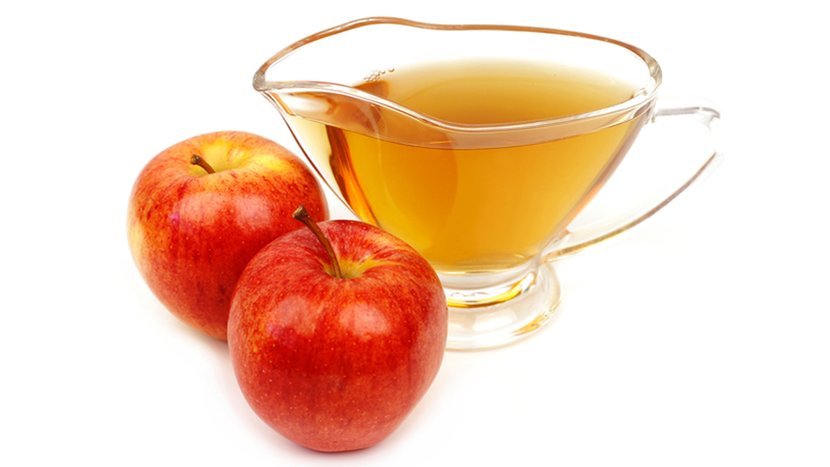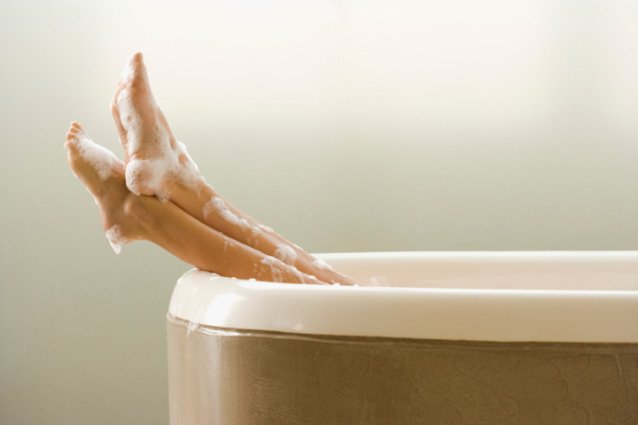Apple cider vinegar is a popular home remedy used to treat a wide range of infections, irritations and skin problems. Eczema is one of the most common skin problems that cause skin irritations and rashes. Eczema can cause both physical and emotional pain.
There are plenty of creams and medications available to help treat eczema that works well. However, apple cider vinegar (ACV) is quickly becoming one of the best alternatives to treat the skin condition. If you have not tried apple cider vinegar then it is definitely worth seeing if it benefits your skin to treat eczema.
Does Apple Cider Vinegar Work for Treating Eczema?
Although there is no cure for eczema, there are plenty of solutions to help decrease the symptoms and calm down the inflammation. Apple cider vinegar works as a great treatment solution for eczema. ACV is packed full of compounds, rich in fiber and highly acidic which helps soothe the affected area.
Apple cider vinegar is full of essential compounds including mineral salts, vitamins, enzymes, and riboflavin. The combination of compounds helps improve the health of the skin and immune system. The vinegar is highly acidic and helps to balance pH levels in the skin, which prevents dryness, itchiness, and irritation on the skin, which often occurs through eczema. ACV also has excellent anti-inflammatory properties, which helps to soothe the skin and gives relief, which is essential to treating eczema.
Treatment Methods
There are a number of different techniques that you can use with apple cider vinegar to help treat eczema. Experiment with the different methods and choose the one that suits your skin best to get the best treatment.
Apple Cider Vinegar on Eczema Skin
The first treatment method is applying a combination of ACV and water to the affected areas of the skin. The solution can be applied to the face, hands, scalp and any other area of the skin that is affected by eczema.
1) Grab a bowl and add an equal amount of water and apple cider vinegar.
2) Stir well and soak a cotton wool ball.
3) Apply the soaked cotton wool ball to the areas of the skin affected by eczema.
4) Hold it to the skin to soak in until the skin is dry.
5) Repeat this process two times a day until you see an improvement in the affected areas.
Apple Cider Vinegar Bath
If you have eczema in different parts of the body, one of the best ways to treat this is by having an apple cider vinegar bath. This allows you to soak the whole of the body and directly target the areas that are sometimes difficult to apply ACV too. An apple cider vinegar bath is beneficial for people with sensitive skin and eczema in different places on the body. ACV baths will help remove dead skin and improve moisture levels.
1) Run warm water to fill your bath to the desired level.
2) Add 2 cups of apple cider vinegar whilst the water is running so it mixes in well.
3) Soak in the bath for 20 to 30 minutes.
4) Dry your body and moisturize the affected eczema areas to prevent dryness.
5) Apple cider vinegar baths can be repeated daily to give the best results.
Apple Cider Vinegar Laundry
Many people have difficulties wearing tight clothing and laundry detergents that both irritate eczema which can worsen the condition. ACV can be added to a load of washing, in a washing machine to help relieve the bad effects of eczema. This technique has been frequently used to help people with allergies and sensitive skin.
1) Load your washing machine with your clothes as normal.
2) Add half a cup of apple cider vinegar to the washing load.
3) Wash, dry and wear clothes as normal
ACV works as a natural fabric softener and doesn’t irritate the skin.The vinegar is more effective than soaps or washing detergents for people who have sensitive skin or skin conditions like eczema.
Apple cider vinegar is a great alternative medicine for home use to help treat eczema and other skin problems. ACV has been found to be very beneficial to the skin because of its bioactive components and antibacterial and anti-fungal properties.

